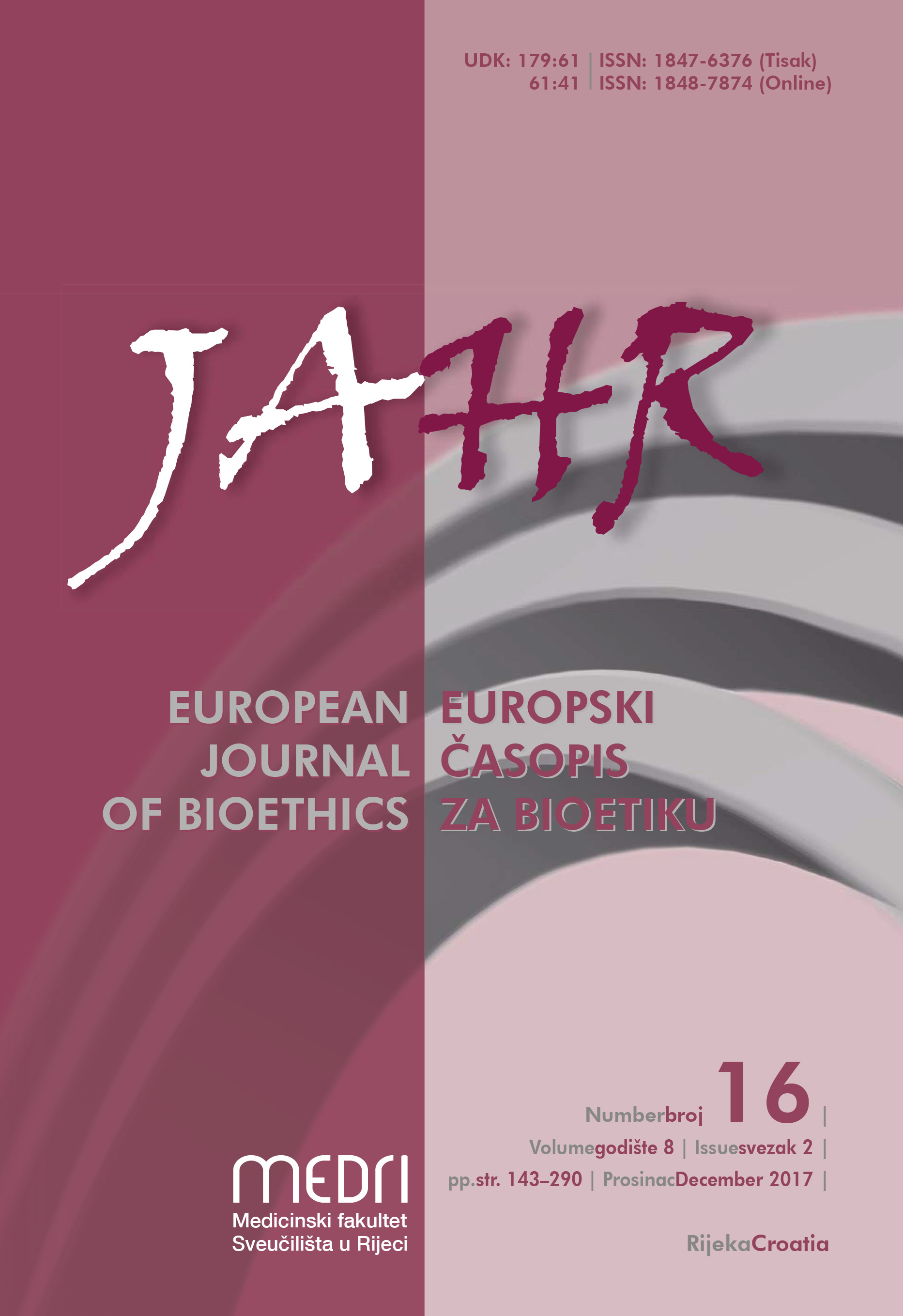Svijest i slobodna volja kao uvjet moralnih odluka
Keywords:
svijest, slobodna volja, mozak, Benjamin Libet, neuroznanost, djelovanje.Abstract
https://doi.org/10.21860/j.8.2.2
The concept of consciousness and free will is approached from a primarily neuroscientific context. The question of what consciousness is – is there free will, what processes are taking place in the brain, and what happens during moral decision making – up until recently was the sole interest of philosophical speculation. However, the situation has changed and consciousness and human action has become an integral part of the research of psychobiologists, neuroscientists, neuroethnologists, etc. One of the first issues in this paper is as follows: can mental events, among which consciousness is included, be reduced simply to sheer physical and material events, since in the framework of the natural sciences research, consciousness is treated precisely in this manner. Although consciousness is a small, very often representative part of our mental life, it enables not only a distribution of the mechanisms that establish the actor’s moral actions, but it also makes them coordinated and connected. Therefore, the paper will also offer possible ethical consequences to such a neuroscientific treatment of consciousness and free will, and the resulting (im)possibilities of transforming contemporary ethics.
Downloads
Published
Issue
Section
License
Authors who publish with this journal agree to the following terms:
- Authors retain copyright and grant the journal right of first publication with the work simultaneously licensed under a Creative Commons Attribution License that allows others to share the work with an acknowledgement of the work's authorship and initial publication in this journal.
- Authors are able to enter into separate, additional contractual arrangements for the non-exclusive distribution of the journal's published version of the work (e.g., post it to an institutional repository or publish it in a book), with an acknowledgement of its initial publication in this journal.
- Authors are permitted and encouraged to post their work online (e.g., in institutional repositories or on their website) prior to and during the submission process, as it can lead to productive exchanges, as well as earlier and greater citation of published work (See The Effect of Open Access).



